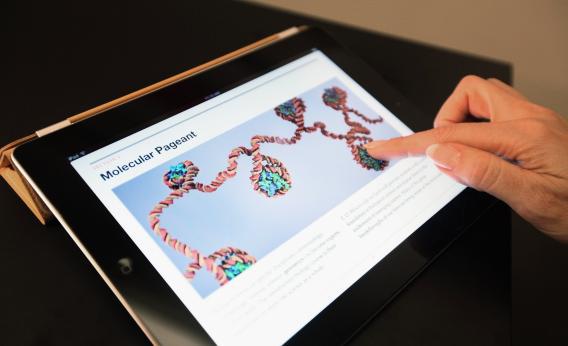Textbook sharing is a time-honored tradition, appeasing the strained budget of students and provoking the ire of publishers and professors. With the increasing popularity of e-books, publishers are worried this behavior will only escalate.
But a patent issued earlier this month aims to stop this practice, by targeting students where it really hurts—their final grades.
On June 5, Joseph Henry Vogel, an economics professor at the University of Puerto Rico-Rio Piedras, was granted U.S. Patent No. 8195571, which proposes a Web-based system to make it easier for publishers to make students pay. The system is based around an online discussion board—one that students would be required to participate in. To get access to the board, you would need to use a code provided in the course’s associated textbook. The budget-conscious could still take advantage of used-books stores—but they’d also have to purchase a (discounted) code.
Fail to participate in the discussion board, and your grade would be docked.
It’s still just a patent—no publisher or professor has instituted the system yet. But some are crying payola. “kind of like the professor standing in front of the class and issuing an ultimatum no matter how good you are you fail unless you pay for your grade,” wrote commenter “Altotus” on ZDnet.com.
However, Vogel claims the system is “one of bounded openness,” claiming it will open up access to information rather than restrict it. If the discussion-board access becomes the product, then publishers will be inclined to “upload the associated e-textbooks for fair use,” he writes in a press release. He also says he hopes that publishers will waive this access fee for students from “low and moderate-income families.”
By protecting textbook revenue, Vogel hopes, professors will have more opportunities to publish their research. But some of these academics may themselves be the biggest opponents to the discussion-board scheme. “Professors are increasingly turning a blind eye when students appear in class with photocopied pages,” the patent application says. “Others facilitate piracy by placing texts in the library reserve where they can be photocopied.”
